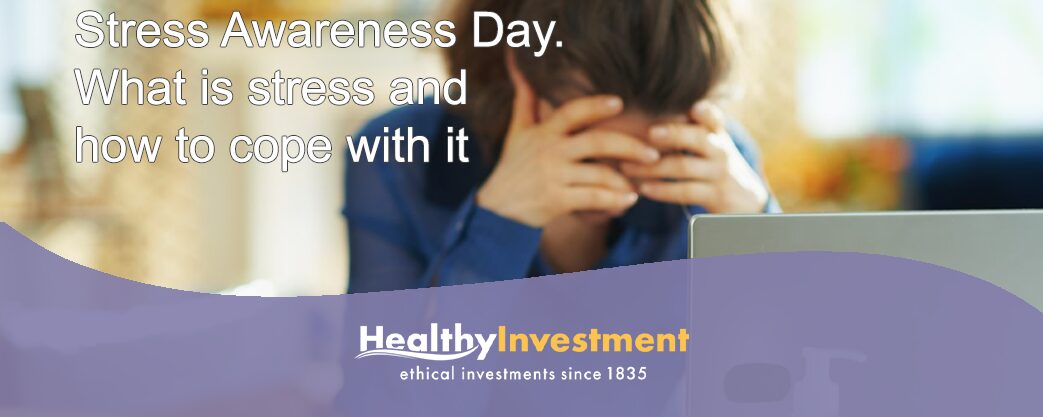This year Healthy Investment are taking part in Stress Awareness Day. We’re talking to our staff about what makes them stressed and how we can help.
Stress is something that features as part of our everyday lives, so we all know what it’s like to feel stressed – being under a certain amount of pressure is something we accept whether at work or in the home. A certain amount of stress can actually be considered a good thing as it can help you to take action and re energise you to get things done and achieve results.
But having too much stress, to the point of becoming overwhelmed by it can lead to mental health problems or make existing problems worse to the point of being unbearable. The current Covid-19 situation has added significantly to those who are suffering from excessive stress, anxiety and mental health issues.
Stress is your body’s way of responding to any kind of demand or threat. When you sense danger—whether it is real or imagined—the body’s defences kick into high gear in a rapid, automatic process known as the “fight-or-flight” reaction or the “stress response.” The stress response is the body’s way of protecting you. Medically when we feel under stress or pressure our bodies release specific hormones called cortisol and adrenaline. It is likely that when you are feeling “stressed out” then you are probably producing higher levels of these hormones than normal. The result is that you may feel physically unwell and, in the long term, your health may be affected adversely.
Stress can manifest itself in a variety of ways. For example, you might find you are suffering from tiredness, headaches or an upset stomach. Often when stressed we find it difficult to sleep and this can lead to not eating properly which only serves to compound the problem and all of this can start to have an effect on you emotionally. You start to find yourself in a vicious circle in that the more you worry about the situation the more stressed you become.
There is no actual medical definition of stress, some medical experts believe that stress is the result of overwhelming problems whilst others will argue that it is the actual cause of them
Whatever your personal definition of stress is, it is likely that you can learn to manage your stress better by:
- Learning how to manage external pressures, so stressful situations do not seem to happen to you quite so often and even when they do you learn to cope with them.
- Developing your emotional resilience, so you are better at coping with tough situations when they do occur and you don’t feel quite so stressed.
Stress, if not recognised and action taken to reduce it, can lead to the onset of mental health problems. This can lean to anxiety and even depression and make existing problems seem even worse. Simple everyday tasks such as taking medication, attending doctor’s appointments can all become major issues in your life
It is vitally important that we all learn more about how to deal with these stress related situations and how to recognise that others may be suffering from them. Admitting that you have a problem and, even more importantly, talking to others about the issues and seeking help is key.
Equally as important as recognising your own stress related issues is recognising them in others and simply talking to those you feel may be suffering. Sometimes all it takes is a friendly ear. Please do not ignore the symptoms, do not be afraid to ask for help and do not simply ignore others who you think may be suffering in silence.
There are many websites offering help and advice on coping with these issues, how to access help and how to obtain useful advice.
For more help and advice the websites below are a good starting point;
https://www.nhs.uk/conditions/stress-anxiety-depression/understanding-stress/


